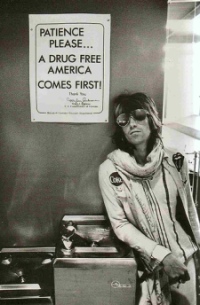I was looking for a poem, or some piece of writing that would express the essence of this weekend– the new era of our Union. The inauguration of a new day. I spent a lot of time reading Walt Whitman, but in the end, a song from The Band’s second album kept running through my head. The song is called ‘When You Awake.’
Robbie Robertson describes it this way: “It’s a story about someone who passes something on to you, and you pass it on to someone else. But it’s something you take to heart and carry with you your whole life.” There’s a sense of awakening, remembering the roots of our revolutionary experiment, connecting to the progress of our souls.
When You Awake
Manuel/Robertson – Vocals: Danko
Ollie told me I’m a fool.
So I walked on down the road a mile,
Went to the house that brings a smile
Sat upon my grandpa’s knee,
And what do you think he said to me?
(Chorus:)
When You Awake you will remember ev’rything,
You will be hangin’ on a string from your…
When you believe, You will relieve the only soul
That you were born with to grow old and never know
Ollie showed me the fork in the road.
You can take to the left or go straight to the right,
Use your days and save your nights,
Be careful where you step, and watch wha-cha eat,
Sleep with the light on and you got it beat.
(Repeat Chorus)
Ollie warned me it’s a mean old world,
The street don’t greet ya, yes, it’s true;
But what am I supposed to do:
Read the writing on the wall,
I heard itwhen I was very small.
(Repeat Chorus)
Wash my hand in lye water, I got a date with the
captains daughter. You can go and tell your brother.
We sure gonna love one another,
Oh! You may be right and ya might be wrong,
I ain’t gonna worry all day long.
Snow’s gonna come and the frost gonna bite,
My old car froze up last night.
Ain’t no reason to hang your head
I could wake up in the mornin’ dead.
Oh! And if I thought it would do any good,
I’d stand on the rock where Moses stood.
